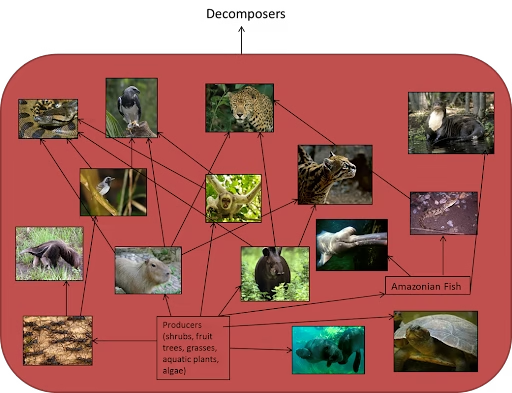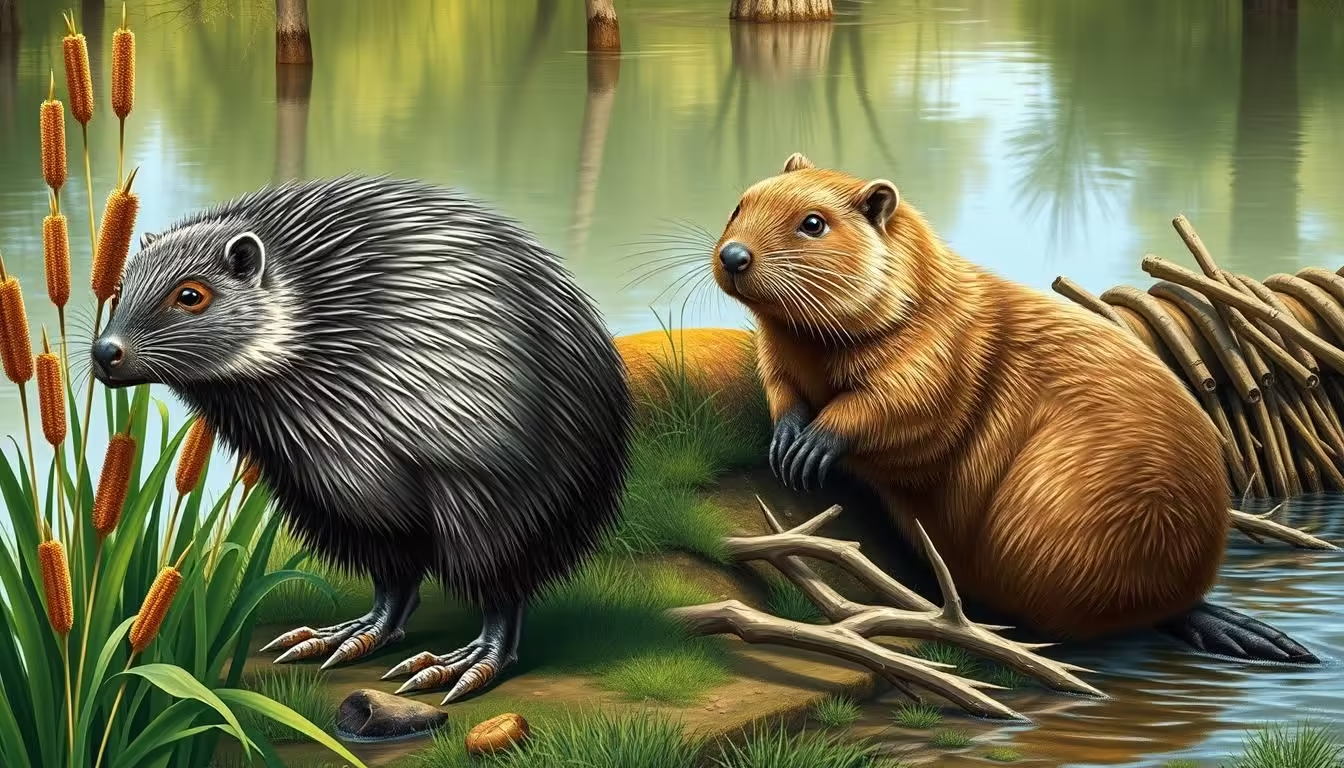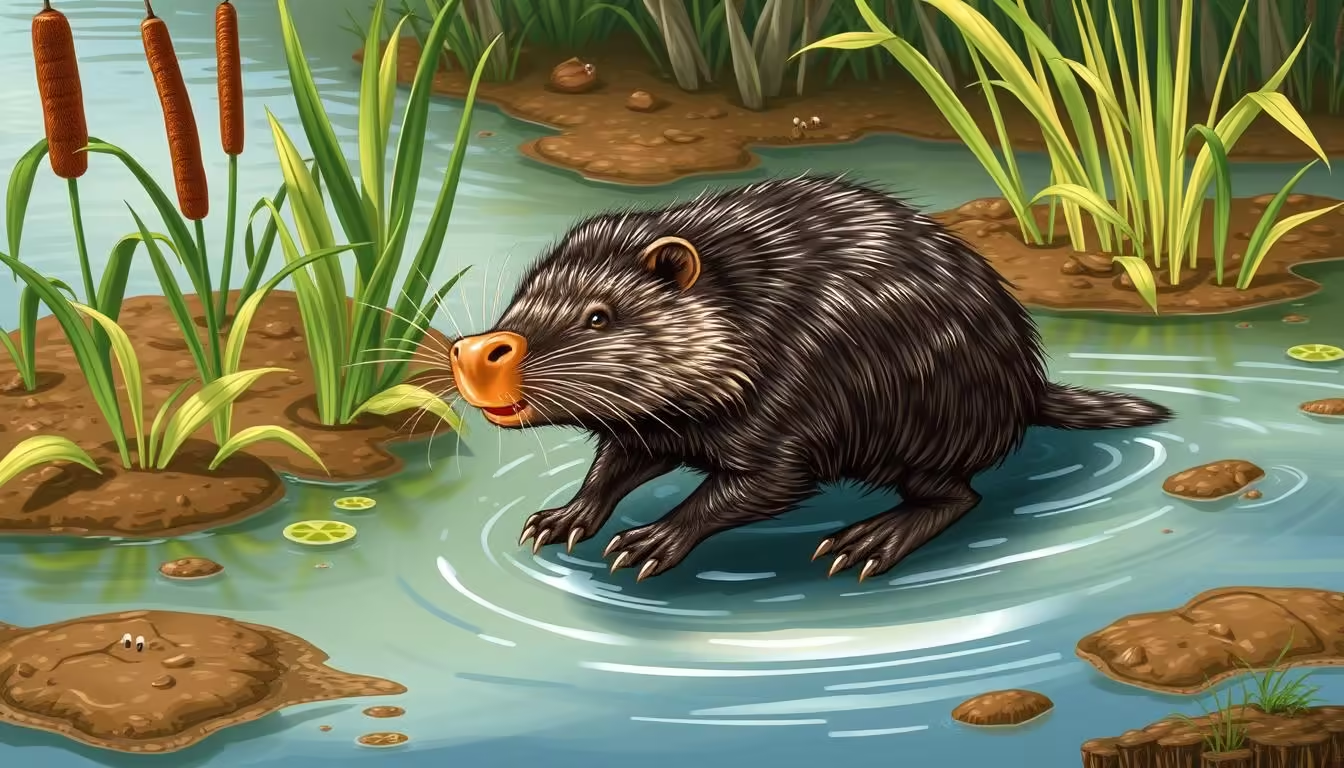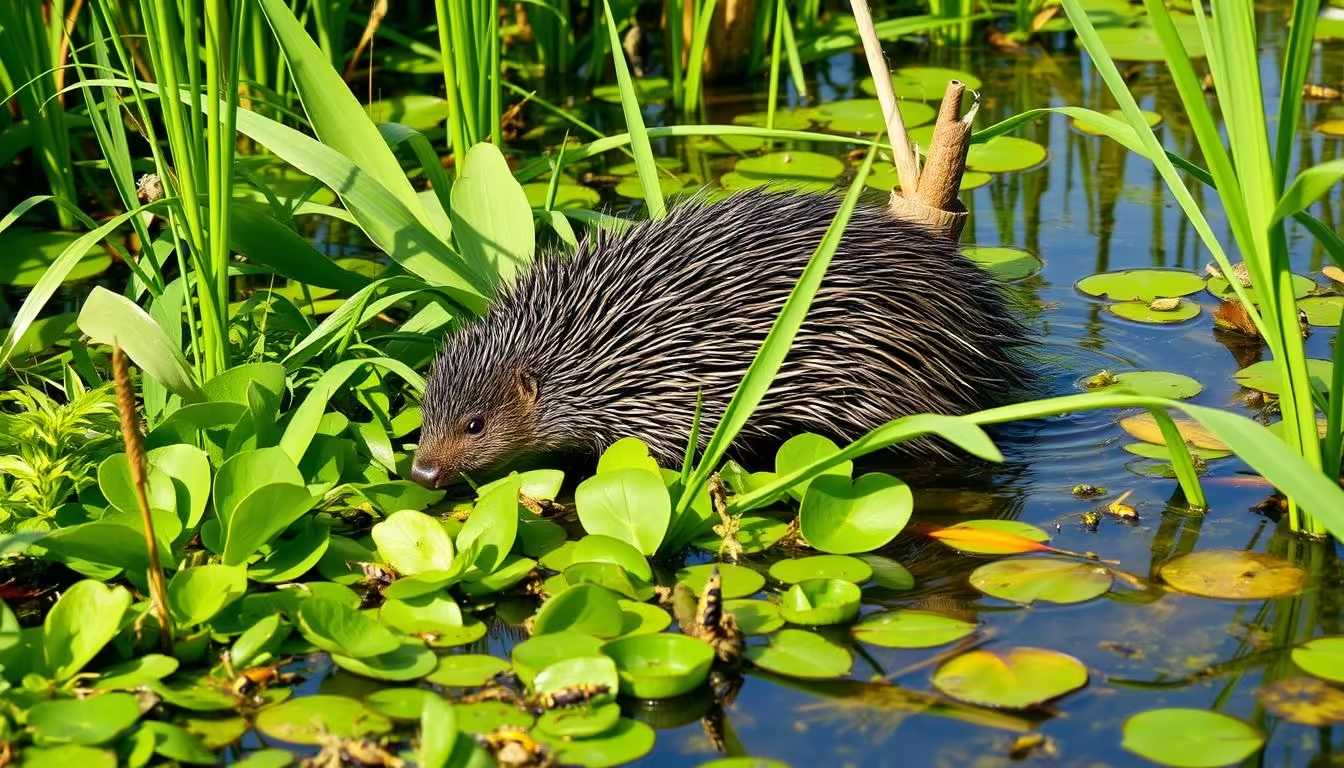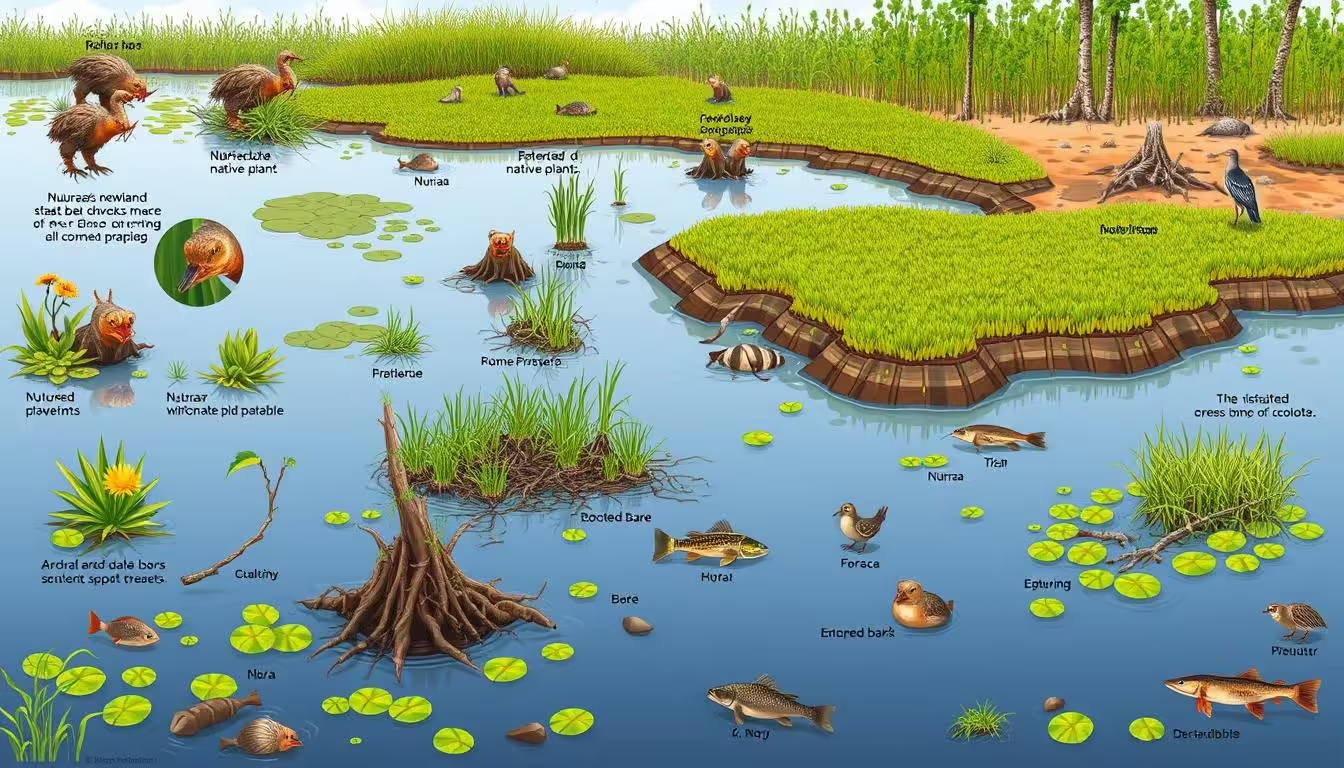Capybaras live in flooded grasslands and lowland forests. Their grazing and social behavior change these areas a lot. This shows how important they are to their habitats. As herbivores, capybaras have big home ranges, up to 200 hectares. On average, a group uses 5 to 20 hectares. Their density is amazing, with one study showing […]
Author Archives: Sharon
Nutria (Myocastor coypus) and beavers are large, semi-aquatic rodents often confused with each other. They share some physical traits but have clear differences. Knowing these differences is not just interesting but also vital for wildlife management and conservation. Key Takeaways Nutria are smaller than beavers but larger than muskrats, weighing up to 20 pounds with […]
Nutria (Myocastor coypus) are large, semi-aquatic rodents from South America. They were brought to the United States in 1889 for fur farming. Now, they are an invasive species in at least 20 U.S. states. The International Union for Conservation of Nature (IUCN) lists them as one of the 100 worst invasive species. These rodents are […]
Nutrias mainly eat plants and vegetation, like cordgrasses and bulrushes. They also eat insects, mussels, and crustaceans sometimes. This diet helps them grow fast and have many babies, as their young can eat right after birth. The damage nutrias do to the environment is huge. They eat a lot and burrow into the ground, destroying […]
Nutria are invasive rodents that threaten native ecosystems. They eat a lot of wetland plants and crops and can damage waterways. A nutria can eat up to 25% of its body weight in plants daily. Nutria’s eating habits have harmed the environment a lot. They’ve turned healthy marshes into open water by eroding them. In Louisiana, […]
In the Gulf Coast states, nutria are most common. They also cause issues in the southeastern states, the Pacific Northwest, and along the Atlantic coast. Their big appetite and fast breeding harm native plants, crops, and wetlands. This damage is permanent and affects vital ecosystems. Nutria are now found almost everywhere on earth. Introduced to […]

